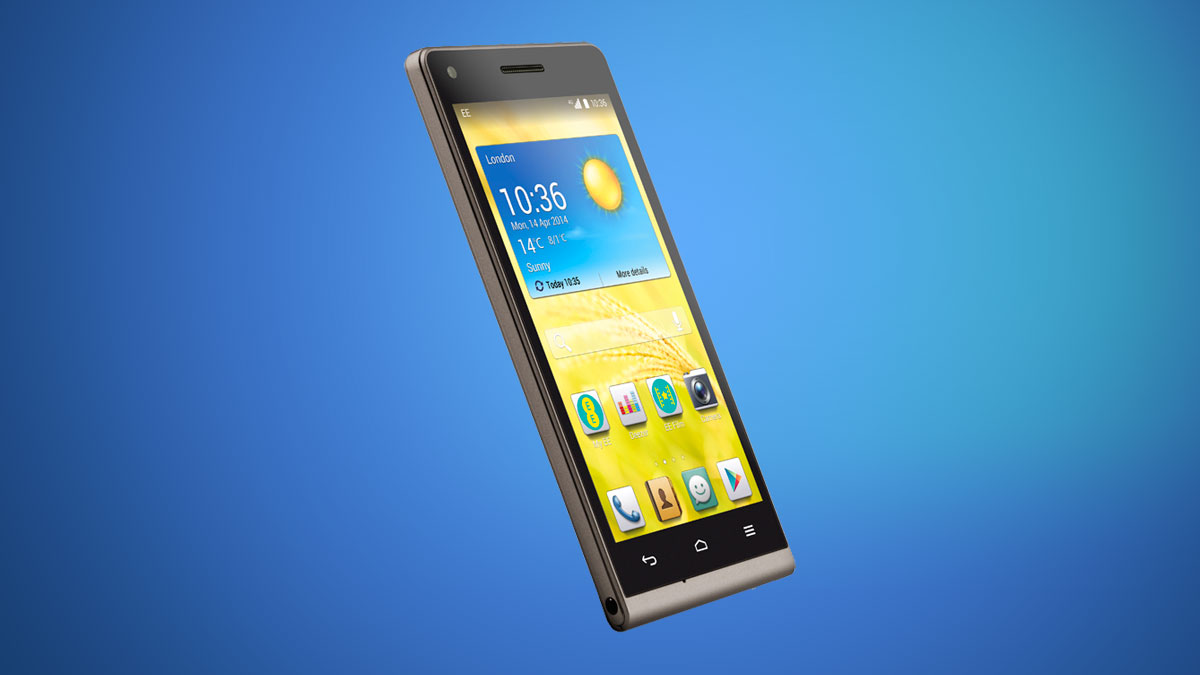TechRadar Verdict
Pitching 4G technology at a super low price point may sound a little crazy but the EE Kestrel has the internal grunt to back it up, if you can forgive some necessary concessions in build and design.
Pros
- +
Low price for 4G
- +
Quad-core power
- +
microSD slot
Cons
- -
Low build quality
- -
Childish Emotion UI
- -
Lacks media apps
Why you can trust TechRadar
Until now 4G technology has been the preserve of high-end handsets while the superfast mobile tech has slowly infiltrated the UK's airwaves. EE is looking to change all that with the launch of its latest own branded handset: the oddly named Kestrel from EE.
The Kestrel itself might not set the world abuzz thanks to a lack of a billion cores and more RAM than you can shake a stick at, but the EE handset does come with the ability to access the superfast mobile internet at a reasonable price point.
Available on PAYG from £99, or on a 24-month contract from £13.99, the EE Kestrel promises a high end experience at low end prices; ideal for teens and parents looking for a cheap smartphone.
With such a low price tag the Kestrel has a large amount of competition from the Nokia Lumia 520, Samsung Galaxy Young and the Moto G. EE's latest baby has its work cut out to shine amongst such a crowded market place.
Unfortunately the design of the Kestrel is unlikely to help it stand out. Anybody looking to escape the humdrum of big black slabs with a screen in the middle will be wholly disappointed as the Kestrel follows a very traditional Android layout, complete with 3 soft keys.
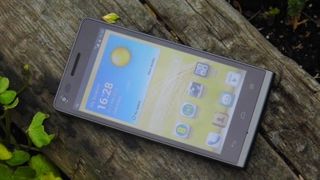
If it looks oddly familiar then fear not, as the Kestrel is made by Chinese manufacturer Huawei and borrows the chassis from the Ascend G6.
Various specs have been tweaked including the inclusion of 4G connectivity, but there's no getting away from the fact that in terms of looks the two are almost identical. Thank goodness for that EE logo slapped on the back of the Kestrel.
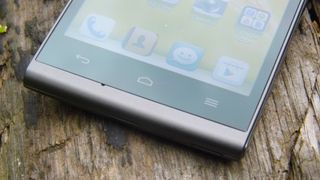
In the hand the Kestrel feels very deserving of its low price tag. I was disappointed with the amount of give in the EE handset when flexed, something that was only reiterated further when removing the very flimsy back plate.
The 133 x 65 x 7.85mm frame weighs a mere 145g. The balance between being light and feeling premium has been missed, with the lack of heft meaning it felt both cheap in the hand and often left me checking my pocket to see if it was still there.

Other then the aforementioned soft keys the Kestrel is pretty sparse on buttons. Only the volume rocker and power/lock key are present, both residing at the top of the right edge. Neither is difficult to hit but the thin plastic nature is another clue to the price of the handset.
The top edge houses only the microUSB port that doubles up as a charging slot. I initially found this placement to be a little off-putting, more used to the port at the bottom but this issue soon disappeared.
My issued with the placement of the headphone port didn't however, as its placement at the bottom of the left edge meant the Kestrel was awkward to hold whilst blasting music.
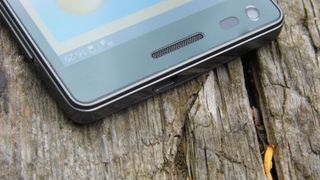
It also made the Kestrel difficult to pocket when my headphones were plugged in as they kept getting caught on the material while I frantically tried to shove it in.
Externally there are some massive clues that give away the lower price tag, but inside it is a different story. The EE Kestrel comes packing a 1.2GHz quad-core Snapdragon 400 processor, this same chip that you'll find in the more expensive HTC One Mini 2.
That's backed up with 1GB RAM, 8GB of internal storage and a 2000mAh battery.
A 4.5-inch qHD (540 x 960) screen fronts the Kestrel, and whilst it was never going to be the crispest screen I've ever seen, it was bright and crisp enough for everyday use.
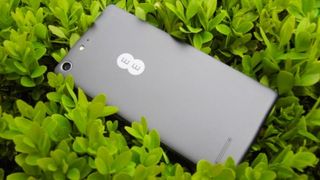
In order to make use of that screen to show off all your latest snaps, you're going to want some decent cameras on the back and front. Here the Kestrel offers a 5MP rear snapper with an LED flash, as well as a 1MP front sensor for those all-important selfies.
These might not be the best cameras on display, but again fit in with the lower price tag attached to the Kestrel.
In all, the Kestrel from EE is an interesting proposition; 4G connectivity backed with some fairly respectable specs for a reasonable price tag.

This budget-friendly Lenovo Chromebook is now at a Black Friday-beating price - and I wish I had it when I was a student

The Logitech G29 racing wheel has a suspiciously Gran Turismo 7-sized discount ahead of Black Friday
Noise-cancelling headphones that let you hear a 'bubble' around you, but block everything else? Sounds great, and researchers have developed the tech
Most Popular


